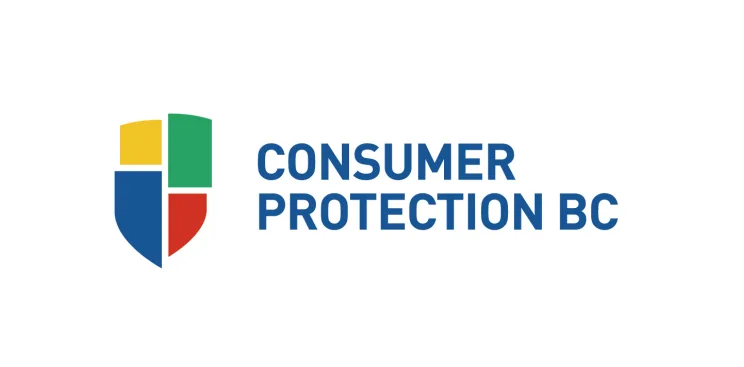
What is the latest a debt collector is legally allowed to call you on a weekday?
Getting collection calls can be stressful. If you're behind on your debt payments, the law speaks to how and when a debt collector can contact you and those around you. If you’re being pressured by someone you owe money to, there are steps you can take. Learn how to deal with debt collectors.
What you should know
Under the law in BC, a debt collector is a person who is collecting or attempting to collect a debt. BC debt collection laws apply to any person or business that fits this description. It could be a retail business you bought furniture from, a cellphone company you signed a contract with, or a collection agency that has taken over your overdue credit card debt.
A collection agent, meanwhile, is a person or business that collects debt for other parties. A party who is owed money (a creditor) typically “sells” the debt to the collection agent. In exchange, the collection agent typically promises to give the creditor a portion of the debt the agent is able to recover.
Put another way, all collection agents are debt collectors, but not all debt collectors are collection agents.
For example, say you buy a car with financing from the car dealership. You fall behind in your payments. The car dealership decides to hire ABC collection agency to collect from you. Both the car dealership and ABC collection agency are debt collectors. Only ABC collection agency is a collection agent.
When collection agents get involved
A creditor might use a collection agent when:
the creditor has exhausted its own efforts to collect,
the amount due does not justify using more expensive means to collect, such as getting a lawyer involved, or
maintaining goodwill with the debtor is not a priority.
Why this matters
Collection agents have no special legal powers to collect from a debtor. They are like any other creditor. One difference is that collection agents are known for using very aggressive tactics. Some contact debtors often and use intimidation to scare debtors into paying. Many of the laws we explain below are designed to protect debtors from these types of tactics.
As well, collection agents must be licensed by Consumer Protection BC. If a collection agent is treating you badly, Consumer Protection BC has more scope to penalize them. We explain this below, under "Work out the problem".
Check to see if the agent is licensed
Consumer Protection BC licenses collection agents in the province. Use the Consumer Protection BC licence search to see if an agent is properly licensed.
“A debt collector started calling my home a few weeks ago. They were calling 10+ times a day. I asked them to direct their calls to my lawyer, but they kept calling me at home. The other day, I found out they’ve started calling my family members. That was the last straw — I’ve complained to Consumer Protection BC.”
– Jeremy, Burnaby, BC

Under the law in BC, a debt collector can’t communicate with a debtor in a way that amounts to harassment. Examples of harassment include:
using threatening, profane or intimidating language
exerting excessive or unreasonable pressure
publishing or threatening to publish a debtor’s failure to pay
For example, a debt collector can’t phone your home every hour demanding payment. This would be exerting excessive or unreasonable pressure.
This rule also covers a member of the debtor’s family or household, a relative, neighbour, friend or acquaintance, or the debtor’s employer.
As well, under Canada’s criminal laws, a debt collector mustn’t:
threaten to harm a debtor or their property
abuse its authority to get money from a debtor
convey false information with the intent to alarm a debtor
A debt collector can’t be deceptive. For example, they can’t send you letters that look like they come from the government when they don’t. That’s considered false information designed to scare you.
See the “Work out the problem” section below for the steps to take if you’re being harassed by a debt collector.
Consider seeking legal advice
If you’re the victim of serious harassment, consider seeking legal advice. One example of serious harassment is where a collector makes repeated abusive calls to your employer.
Under the law in BC, a debt collector can’t try to collect until they’ve sent the debtor written notice. This letter must include all of the following:
The name of the original creditor.
The name of the creditor to whom the debt is currently owed, if different from the original creditor.
The amount of the debt on the date it was due.
The amount of the debt currently owing.
The collector’s identity, and its authority for collecting the debt.
However, a debt collector can call a debtor before sending the notice if the collector is only trying to find out the debtor’s home address or email.
A debt collector must wait five days after the written notice is sent (not received) before calling the debtor.
Under the law in BC, a debt collector must not communicate by telephone or in person with a debtor:
from Monday to Saturday before 7 am or after 9 pm
on a Sunday before 1 pm or after 5pm
on a statutory holiday at any time
This rule also applies to:
a member of the debtor's family or household
a relative, neighbour, friend or acquaintance of the debtor
the debtor's employer
any guarantor of the debt
Under the law in BC, a debt collector can only contact a debtor at work in one of the following situations:
The collector doesn’t have the debtor’s home address, phone number or email, and is only trying to get that information.
The debtor permits the collector to contact them at work.
The collector has attempted to contact the debtor at home, by phone or by email, but has failed to connect. In this case, the collector must not make more than one verbal attempt to contact the debtor at work.
A debt collector is prohibited from harassing a debtor’s employer. For example, a collector can’t repeatedly call your boss to try to get you fired over an unpaid debt.
You're not off the hook just because they stop contacting you
Just because a debt collector stops contacting you doesn’t mean you don’t owe the debt anymore. You’re legally required to pay all the debts you owe. See our guidance on your options for getting out of debt.
Under the law in BC, a debt collector can only contact a debtor’s friends and family members to request the debtor’s home address, phone number or email. Two exceptions to this rule are when:
the person being contacted has guaranteed the debt, and is being contacted about the guarantee
the debtor has given permission to the collector to contact the person about the debt
It’s illegal for a debt collector to harass a debtor’s friends or family members. See above for a description of what amounts to harassment.
Under the law in BC, a debtor can request that a debt collector communicate with them only in writing. The collector must contact a debtor only in writing where:
the debtor has requested to be contacted only in writing, and
the debtor has provided their mailing address.
Alternatively, a debtor can request that a debt collector communicate directly with the debtor’s lawyer. The collector must contact a debtor through the debtor’s lawyer where:
the debtor has requested that the collector communicate only with the debtor’s lawyer, and
the debtor has provided an address for the lawyer.
Consumer Protection BC provides printable forms that debtors can fill out and give to a debt collector:
a printable form to request communication in writing
a printable form to request communication through a lawyer
There is also an online form that you can use (you must know the debt collector’s email address).
The law in BC creates a basic limitation period of two years for starting a legal action. A lawsuit cannot be brought more than two years after the “claim is discovered." In the case of a debt, if a debtor hasn’t made a payment — or acknowledged that they owe a debt — in more than two years, the creditor may be barred from bringing legal action to collect.
Here’s an example. Say you owe the phone company $2,000 in unpaid phone bills. It’s been three years since you’ve made any payments. You haven’t heard anything from the phone company during that time about your debt. Now out of the blue a collection agent contacts you demanding payment.
In this case, you may be able to defend the claim arguing that the limitation period has expired. Don’t volunteer the information that you haven’t made any payments. By indicating that you owe the debt, you may be restarting the limitation period.
Consider seeking legal advice
If you’re being asked to a pay a debt and you think the limitation period may have expired, seek legal advice right away.
By disputing a debt, a debtor is saying they don’t owe the debt. A debtor might dispute a debt where:
the debt was already paid
it’s someone else’s debt
the collector is asking for more than what’s owed
Under the law in BC, a collector must stop communicating with a debtor once the debtor has notified the collector and creditor that the debt is in dispute and that the debtor would like the creditor to take the matter to court.
To dispute a debt, you must contact the collector and the creditor in writing. Here is a printable form you can use to dispute a debt. There’s also an online form you can submit (you must know the collector’s email address).
Sometimes debt collectors are working with bad information. If a debt collector contacts you and you think they have the wrong person, notify them in writing. Here is a printable form you can use. There is also an online form you can submit (you must know the collector’s email address).
Keep the credit reporting agencies informed
If you dispute a debt, you should let the credit reporting agencies know. Incorrect information on your credit report can make it more difficult for you to borrow money. A debt may still show on your credit report while you’re disputing it. See our guidance on fixing a mistake on your credit report.
Work out the problem
The first step in stopping harassment by a debt collector is to create a paper trail. Start keeping a record of all communications. This includes any contact the collector has with you — or with anyone else — about a debt you owe.
Record the date, time and content of any phone calls or messages you receive. Gather any written evidence that you sent or received from the collector, including letters, emails, faxes or text messages.
If a debt collector contacted your employer, co-workers, family or friends, ask them to write a letter saying so.
Confirm the identity of the debt collector. Use caller ID or call tracing if you have to.
If it’s a collection agent, it must be licensed by Consumer Protection BC. Use the Consumer Protection BC licence search to see if the agent is properly licensed.
Be aware of the limitation period
Before you respond to a debt collector, determine if the limitation period for the claim has expired. The basic limitation period for starting a legal action in BC is two years from the date the claim was “discovered." See the “What you should know” section above.
Insist that the debt collector send you written notice of the debt, if they haven’t done so already. A collector is legally required to wait five days after sending you written notice before trying to collect.
Let the collector know you’re aware of the debt and want the calls to stop. Tell the collector you’ll be making a complaint to Consumer Protection BC if this continues. Consider advising the collector that you’ll start a legal action if there is any further harassment.
You can request that the collector contact you only in writing or only through a lawyer. The collector is legally required to cooperate. See the “What you should know” section above.
Consider sending a written letter outlining your proposal for resolving the debt claim. The collector may agree to change the repayment terms to make it easier for you to pay. See our guidance on negotiating with your creditors.
If a debt collector continues to harrass you or someone you know, submit a complaint to Consumer Protection BC. This office, the provincial regulator, oversees debt collectors and licenses collection agents in the province.
You can contact them by:
filing a complaint form
calling toll free at 1-888-564-9963
If you submit a complaint form, you will hear back within one to two weeks. If you call instead, someone will hear your complaint immediately.
Have all of the evidence you gathered ready when you make your complaint. If the complaints manager thinks there’s merit to your complaint, they will contact the collector.
The complaints manager will ask the collector to stop its collection practices against you. They may also issue a compliance order. This requires the collector to stop future unreasonable collection practices.
If there have been multiple complaints against them, a collection agent may have their licence revoked. If the harassment is serious, the agent may have to pay a penalty as well.
Inform the collector of your complaint
Let the collector know you’ve made a complaint against them. Often, this will be enough to stop them from making any more phone calls.
Common questions
If a collector is asking for more than you owe, or a debt that you’ve paid already, you can dispute the debt. By disputing a debt you’re telling the collector that you don’t owe the debt. Once you’ve let the collector know you’re disputing the debt, it must stop contacting you. See "What you should know," above, in the “If you dispute the debt” section.
If a bank (or any creditor) hasn’t been able to get you to pay your debt, it can “assign” the debt to someone else. Basically, the bank sells the debt to another party, who then becomes responsible for getting you to pay it back. In exchange, the other party usually promises to pay the bank a percentage of what’s collected.
Collection agencies are in the business of taking over the debt claims of other creditors. They don’t have any special legal power to collect from you. However, they are known for using more aggressive tactics than most creditors. You’ll likely start to receive phone calls from the collection agency. The law regulates when and how debt collectors can contact you. See the “What you should know” section above.
Legally speaking, you have the right to ignore a collection agent. However, it’s important to understand that this won’t make your debt go away. There are several possible outcomes if you ignore a collector’s calls.
One: the collector may give up trying to contact you. This is unlikely, and not something you should count on.
Two: the debt might continue to grow. It’s possible the debt will continue to incur interest until the agent is able to collect. This depends on the agreement between the creditor and the collection agent.
Three: the collection agent may start contacting people you know. If the agent can’t get hold of you, it may start calling your friends, family members, or even your employer. However, there are laws that limit when and in what circumstances a collector can contact other people about your debt. See the “What you should know” section above.
Finally, the collector might sue you for the debt. While it’s possible to successfully defend a collection lawsuit, it’s difficult. If the lawsuit is successful, the collector would get a monetary judgment against you. This could allow the collector to take money from your wages or your bank account to pay the debt.
Who can help
If you’re having trouble managing your debt, see our guidance on your options for getting out of debt.

Consumer Protection BC
They can help if you’re having trouble with a debt collector or debt collection agency.

Access Pro Bono's Free Legal Advice
Volunteer lawyers provide 30 minutes of free legal advice to people with low or modest income.

Access Pro Bono’s Everyone Legal Clinic
Clinicians provide affordable fixed-fee services on a range of everyday legal problems.

Lawyer Referral Service
Helps you connect with a lawyer for a complimentary 15-minute consult to see if you want to hire them.

BC Legal Directory
Search for a lawyer by community or legal issue. From the Canadian Bar Association, BC Branch.

